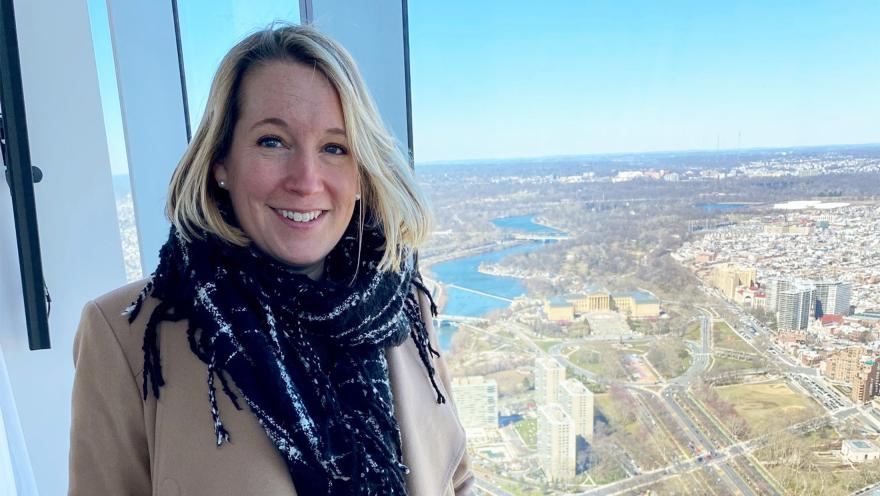This week the world turned their focus to the celebration of women and girls in science, shining a light on the tremendous gender gap that still exists in the world of science. The U.N. reports less than 30% of researchers worldwide are women and is striving to find ways to make a change.
This Day is a reminder that women and girls play a critical role in science and technology communities and their participation should be strengthened for future growth and progress. Bringing in fresh perspectives, talents and creativity in the field of STEM will only help to expand the pool of talented researchers around the world.
We asked Jill Yersak, Ph.D., Vice President of Mission Strategy at The ALS Association about her personal experience growing up in the STEM field to understand this trend from her perspective. Here’s what Dr. Yersak shared:
When did you realize you wanted to pursue a career in science? What drew you to the field?
As a student, science and math were my favorite courses and I enjoyed problem solving. I also knew that I did not want to be a medical doctor like many of my friends, since I did not (and still do not) like hospitals. I was lucky. In my first job out of college I worked at the Children’s Hospital of Philadelphia in a research lab and had a great mentor that was an M.D./Ph.D. clinical geneticist. She was brilliant, had a young family, and was (and still is) extremely successful. And she saw my potential before I did. From her example and support, I decided to pursue a career in research.
How did you become interested in ALS research?
First, my grandfather died of Parkinson’s disease. That pushed me to pursue my Ph.D. work in neurodegenerative diseases. Second, when it became time to pick my postdoc fellowship position, I got lucky again and was introduced to my future mentor at Brown University. Together, we started a new ALS research program in her lab, which I am proud to report is still going strong today.
Long-standing biases and gender stereotypes are steering girls and women away from science related fields. Were there challenges you faced personally as you pursued your career in science and if so, what were they?
As a woman in science, I think there are always barriers to overcome. In school and in my work, I faced issues such as getting equal pay and working to navigate both my family and working full time. Along my career, I am blessed with strong female mentors who helped me navigate through tough challenges and I have spoken up and worked extra hard to overcome them.
This week, the world celebrated the International Day of Women and Girls in Science. According to the U.N. less than 30 percent of researchers worldwide are women. What do you see as the key barriers to attracting more women to science?
A career choice in STEM is not for the faint of heart. Major barriers exist in having a family while working full time and often long hours to achieve our goals. Also, childcare is expensive making it cost prohibitive for many women. To add to everything, during this pandemic I have been reading about and seeing firsthand women dropping out of the workforce before their partners in order help their kids learn virtually at home and maintaining a household.
Any advice on how to navigate a career in science?
My best advice that has helped me tremendously is to surround yourself with people who are supportive and have a positive outlook – your family, friends, whoever. And do not be afraid to ask for help. I bet they need or will need help in the future. Giving back in return is an amazing thing.
To listen to our latest Connecting ALS podcast, "Honoring International Day of Women and Girls in Science," CLICK HERE.


Join the conversation. Please comment below.